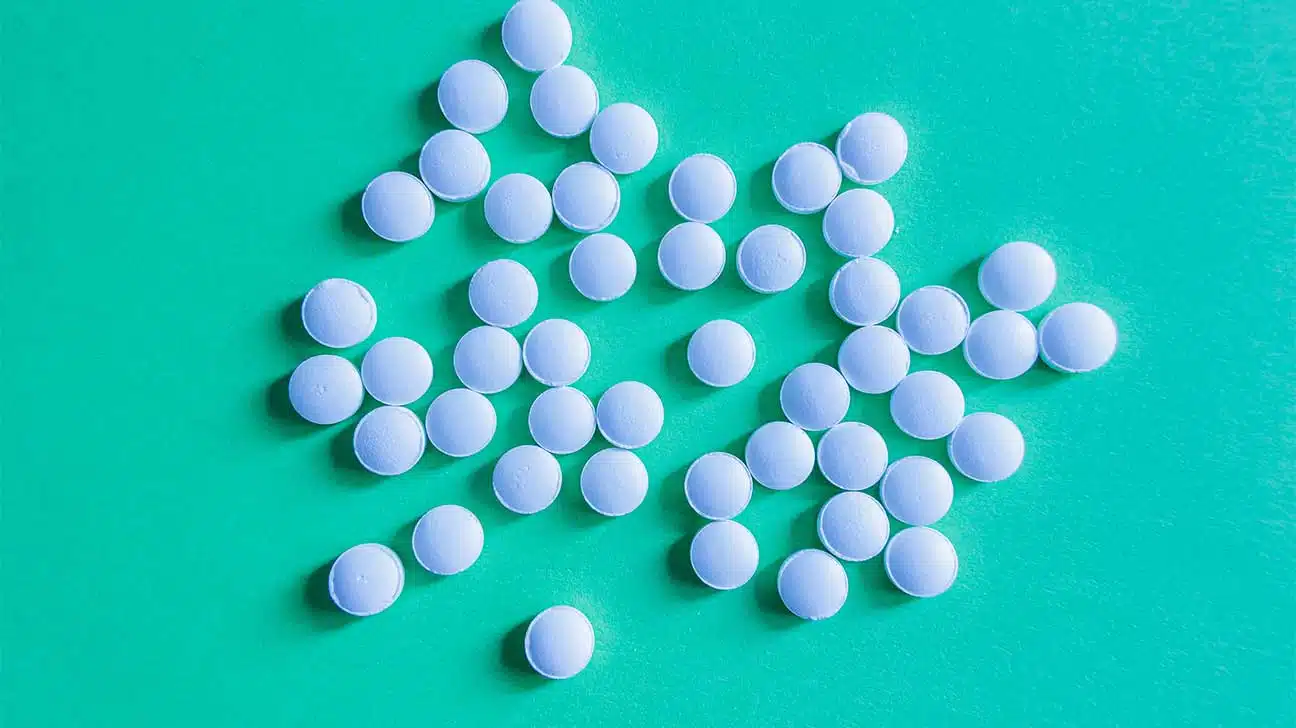
Captagon, a stimulant drug, is a commonly abused substance in Syria.
Since 1981, this drug has been listed as a controlled substance, and the U.S. Food and Drug Administration (FDA) does not list any approved medical uses for it.
Though not the most common drug of choice in the United States, Captagon still presents a major concern, causing long-term health problems, overdose, and death.
What Is Captagon?
Captagon is a brand name for fenethylline, a prescription drug that emerged in 1961.
Originally produced in Germany, Captagon was intended to treat attention-deficit/hyperactivity disorder (ADHD), as well as narcolepsy and depression.
Manufacturers produced the drug as a milder alternative to amphetamine, a common ADHD medication.
How Does Captagon Work?
Captagon is a prodrug for amphetamine and theophylline, both of which are stimulants. A prodrug is a drug that converts to another substance after the body metabolizes it.
In other words, Captagon itself is not the same as amphetamine or theophylline, but it turns into these substances after a person consumes it, thus producing the same effects.
A stimulant is a drug that speeds the central nervous system (CNS) by increasing the brain’s available dopamine, a reward chemical that boosts energy and focus.
Though Captagon itself is banned in the U.S., it produces similar effects as other prescription stimulants.
The prescription drug Vyvanse, for example, a prodrug for dextroamphetamine, is sometimes prescribed to Americans with ADHD.
Effects Of Captagon
Captagon and other stimulants produce different effects for different people, depending on their medical history.
For people with ADHD or narcolepsy, which are thought to cause dopamine deficiency in the brain, these medications raise available dopamine to normal levels, allowing people with these diagnoses to remain alert, initiate tasks, and sustain focus.
For people who do not naturally have enough dopamine available, appropriate use of stimulants does not cause a high. In fact, for many people, it can provide protection against addiction.
For people who already have an adequate dopamine supply, however, drugs such as Captagon elevate it to unsafe levels.
Because dopamine is a reward chemical, it encourages behavioral repetition each time it is released.
As Captagon causes a surplus of dopamine, it prompts repeated drug use that can quickly become an addiction.
Side Effects Of Captagon
As an amphetamine-like drug, Captagon has similar side effects as other powerful stimulants.
Adverse effects vary based on how much Captagon a person has used, as well as how long they have been abusing it.
Some of these side effects include:
- elevated heart rate
- elevated body temperature
- elevated blood pressure
- sleep deprivation
- heart toxicity (damage to the heart by a toxin)
- malnutrition
- sleep disturbances
- depression
Unlike many other stimulants, however, Captagon is not taken under doctor supervision, due to the fact that it doesn’t have any FDA-approved medical uses.
This means that if a person attempts to self-medicate with Captagon, their doctor cannot monitor or adjust the dose size based on that person’s needs and health conditions.
As a result, these side effects can become especially pronounced and dangerous.
Why Is Captagon Banned?
It is unclear why the U.S. banned Captagon in its original, regulated form.
The ban occurred during the Ronald Reagan administration, an administration whose drug policies resulted in strict laws and mass incarcerations.
However, the “Captagon” available on the streets today is not the same as genuine pharmaceutical Captagon. Therefore, it is not safe for anybody to consume it.
Because Captagon has no FDA-approved medical uses, all Captagon in the U.S. is illicit and unregulated.
As a result, people who take this drug will have no way to determine the amount they are consuming or the precise ingredients of the drug.
Captagon tablets are often laced with other substances such as amphetamine and caffeine.
In many cases, supposed “Captagon” tablets do not contain any fenethylline at all. Instead, they contain more potent and dangerous substances that can increase the risk of overdose and death.
Recover From Stimulant Abuse
Captagon and other stimulants are highly addictive when abused. Though recovery from addiction can feel impossible, people do recover with the right treatment and support.
If you or a loved one needs addiction care, contact Addiction Resource today to learn about treatment choices.
Addiction Resource aims to provide only the most current, accurate information in regards to addiction and addiction treatment, which means we only reference the most credible sources available.
These include peer-reviewed journals, government entities and academic institutions, and leaders in addiction healthcare and advocacy. Learn more about how we safeguard our content by viewing our editorial policy.
- Forbes
https://www.forbes.com/sites/carmendrahl/2015/11/21/what-you-need-to-know-about-captagon-the-drug-of-choice-in-war-torn-syria/?sh=5239c9a93c82 - National Library Of Medicine
https://pubmed.ncbi.nlm.nih.gov/15978343/ - United States Department Of Justice
https://www.ojp.gov/ncjrs/virtual-library/abstracts/fenethylline-and-middle-east-brief-summary


